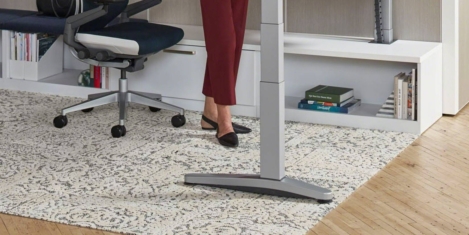September 12, 2018
Work&Place new issue showcases most informed and challenging workplace thinking
 The new issue of Work&Place has been published and is free to read on the journal’s new website. Its overall readership is now around 100,000, including in the new Spanish language edition, so it’s not just more accessible, it is even more influential. The journal continues to explore the most cutting-edge ideas surrounding the physical, digital and cultural domains in which we work. The convergence of these elements of the workplace define the greatest challenges we face in the workplace of the early 21st Century. Some of these are addressed in the features included in this edition.
The new issue of Work&Place has been published and is free to read on the journal’s new website. Its overall readership is now around 100,000, including in the new Spanish language edition, so it’s not just more accessible, it is even more influential. The journal continues to explore the most cutting-edge ideas surrounding the physical, digital and cultural domains in which we work. The convergence of these elements of the workplace define the greatest challenges we face in the workplace of the early 21st Century. Some of these are addressed in the features included in this edition.














 More SMEs than larger businesses offer flexible working as a way of reducing absences, research from industry body Group Risk Development (GRiD), suggests. The research showed that 35 percent of SMEs with up to 249 employees are actively using flexible working strategies to combat absence compared to just 23 percent of organisations with over 250 employees. Drilling down further into the detail, 38 percent of micro businesses with between 1 and 9 employees use flexible working as a means to reduce absence. Flexible working now means a lot more than allowing an employee to work from home when they are feeling under the weather, and following changes in the law in 2014, it is now an option for everyone with at least 26 weeks continuous employment to request it – not just those with children or carer responsibilities. It also includes part-time working, term-time working, job sharing, compressed hours and flexitime. A greater degree of flexibility can increase productivity and reduce burn out, particularly in stressful occupations.
More SMEs than larger businesses offer flexible working as a way of reducing absences, research from industry body Group Risk Development (GRiD), suggests. The research showed that 35 percent of SMEs with up to 249 employees are actively using flexible working strategies to combat absence compared to just 23 percent of organisations with over 250 employees. Drilling down further into the detail, 38 percent of micro businesses with between 1 and 9 employees use flexible working as a means to reduce absence. Flexible working now means a lot more than allowing an employee to work from home when they are feeling under the weather, and following changes in the law in 2014, it is now an option for everyone with at least 26 weeks continuous employment to request it – not just those with children or carer responsibilities. It also includes part-time working, term-time working, job sharing, compressed hours and flexitime. A greater degree of flexibility can increase productivity and reduce burn out, particularly in stressful occupations.
















September 4, 2018
Don’t stand so close to me: why personal space matters in the workplace 0
by Paul Goodchild • Comment, Wellbeing, Workplace design
(more…)